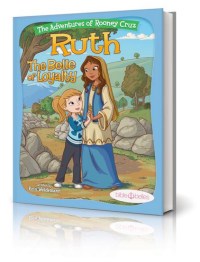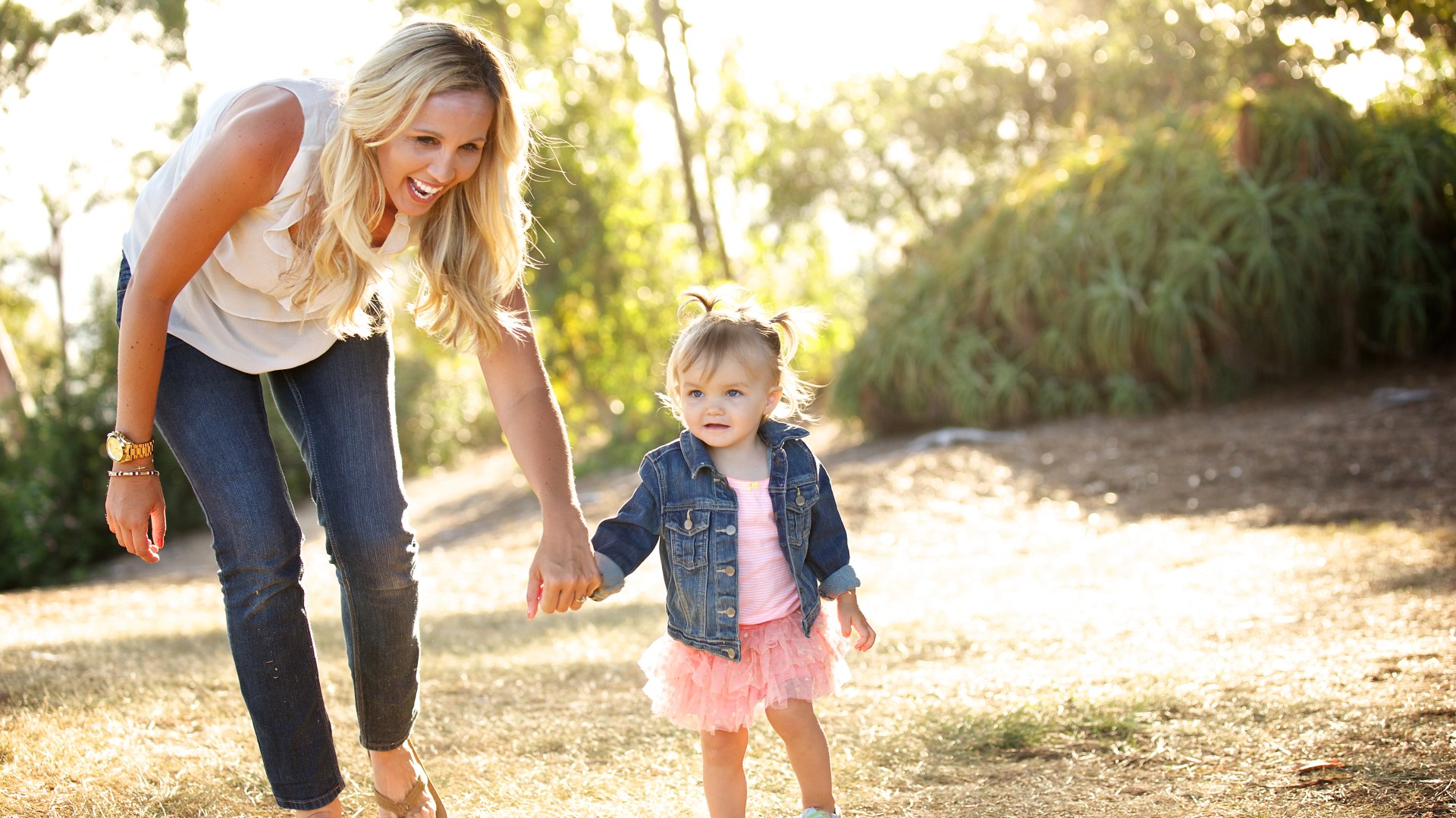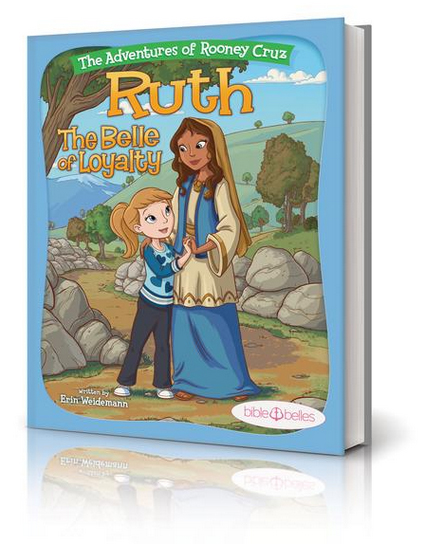Quarantined during a 72-hour radioactive iodine treatment, Erin Weidemann had what she calls “a dark moment of the soul.” Hours before, she had swallowed a pill that doctors hoped would kill the aggressive cancer metastasizing in her chest and head. At 26, she faced the reality of her own mortality.
“My battle with cancer was a five-year period where I was discovering a closeness with the Lord,” says Weidemann. “I have never experienced peace, healing, and blessing like I did when I said to him, I accept everything you have for me. That created and stirred inside me a boldness to do things I would never have done before.”

That boldness gave her the courage to write a book for her five-year-old niece, Hannah. As a birthday present, Weidemann gave her a simplified story of her biblical counterpart. “She was confused, because she didn’t know there was a Hannah in the Bible,” says Weidemann.
Through that experience, Weidemann discovered her desire to connect girls with Bible-based role models. Now, Weidemann is the author, CEO, and co-founder of Bible Belles, a book series that addresses the “knowledge gap” she saw in her niece. She also hosts the Heroes for Her podcast.
CT recently caught up with Weidemann at her home in California to talk about her growing ministry to the next generation of Christian women.
What was the initial inspiration for the Bible Belles series?
I have always felt a special connection with children. I’m somebody who feels for the next generation of kids and desperately wants to help them. So the Bible Belles project was born out of the time that I spent teaching in the classroom and wondering, “Isn’t there something we can do to help kids understand that they have an identity in Christ—understand that, because of who he is, they are beautiful, unique, and designed to do something worthwhile?”
Hanging out with kids all day, I thought, “I’m learning and growing closer to the Lord and learning more about him. What he says about beauty is the truth and needs to be our truth.”
With all the personal causes that could easily draw your attention, who or what has inspired you to champion little girls?
My own daughter. She is my inspiration. As somebody who never expected to be a mom, I have an amazing little girl who I am charged with guiding, supporting, and helping. I need help to do that, and even when I feel like I can’t, God equips me to do it. I find great comfort in that, even on days when I don’t feel like I’m doing a good job.
Each main character in your four books has a distinct ethnicity, most notably Abigail. Why did you feel it was important to include women of color in these stories? And what research did you do for each book to support the character’s physical interpretation?
We’re really prayerful in the way we consider the physical attributes of each Bible Belle. There is not one single way to define beauty as it relates to women, so we want to celebrate that by having characters that relay beauty in a variety of ways. For each of our books, we work closely with our illustrator and our design team to make sure things are historically accurate and representative of culture at that time. We cite the Holy Bible (New International Version), and we also reference the New King James Life Application Study Bible and the American Bible Society’s Legendary Women of the Bible book.
You’ve mentioned media bombardment as one factor that you think plays a role in the knowledge gap experienced by today’s girls. What other factors contribute to it?
It’s no secret that the majority of teaching in the church is focused on male-centered stories. For girls, there is often not a way for them to connect meaningfully to the women of the Bible. They need to be inside God’s Word, reading his truth, and interacting with the Word in a way that is meaningful and applicable to their life experience. Through Bible Belles, we want to show examples of women whose inner beauty God used for a mighty purpose, and we want to help girls understand how he was at work in the lives of these women who came before them.
As a teacher and now a mother, what are some other steps you have taken to lessen the knowledge gap, introduce your daughter to female figures in the Bible, and offer biblical messages of self-worth that counteract current cultural ideas?
My daughter and I sit in her room and talk about these characters. We’re in the Word together. We’re doing devotionals at bedtime. We’re in that conversation about character and character development, and not just hers—I also want to help her understand the character of God. I find myself using the language from the books. In the Abigail book, for example, we talk about a phrase from the book, “God makes us brave.” He empowers us by making us brave.
I prayed over every word in these books, because they’ve got to be able to connect with girls. And a lot of parents, too, need these words. That’s what I needed. I needed to sit down and think, “Gosh, if I want to speak this into my daughter’s life, what are the words I can use?”
Your next book is about Ruth. Can you give us a sneak peek into the story and its takeaway message?
Book four, Ruth, is where the series takes an important turn away from a focus on self. In the story, Rooney is challenged by a fight that she has with her really good friend from school. The story becomes outwardly focused and explores what it means for each person’s time here on this earth. Ruth is the belle of loyalty, because loyalty is about loving other people the way God loves us. God calls us to love in all circumstances, and that’s what loyalty is. It means loving others faithfully. It means loving them even when you feel like they don’t deserve your love.
You talk about being a Bible Belle and teaching girls how to make a different kind of “noise.” What does it mean to “make noise” as a woman, and what’s the ultimate purpose?
The genesis of that idea about noise comes initially from this world, right? It’s loud and confusing when you’ve got this sea of culture speaking into your life about who you are, and it’s telling you the wrong thing. To make a different kind of noise means to use the gifts that God has equipped and empowered us with out in the world. We are trying to counteract culture by creating an army of girls who are not afraid to step into their calling with boldness, knowing the truth about who they are.
What are some little things that you do as a mother to make a “different noise” in day-to-day life?
I talk a lot with my daughter, Rooney, about thoughts, feelings, and actions. I specifically try to use the words ugly and beautiful as they relate to things that she does or thinks or says. I try to have little conversations with her that will remind her that beauty is not on the outside. She and I also talk about miracles a lot. She knows that Mom is here, and that’s a miracle. She knows that she is a miracle. We talk about these things all the time, just to remember what God did.
These books are about sparking conversations. What conversations are you hoping to have with your daughter that you wished you had with your mom, and what conversations are you hoping other girls and women will have with each other?
I love my mom! She is an amazing woman. We missed out on so many opportunities to grow close together but more importantly, to grow closer to the Lord. That is what I wish I had, but more importantly, it’s what we all need. My goal is that we could move the conversation about identity, beauty, and purpose into a place where kids get that grown-and-sown right into their identity—right into the fabric of who they are. I want my daughter to understand more about who God is, what his character is, and what that means for her life.










